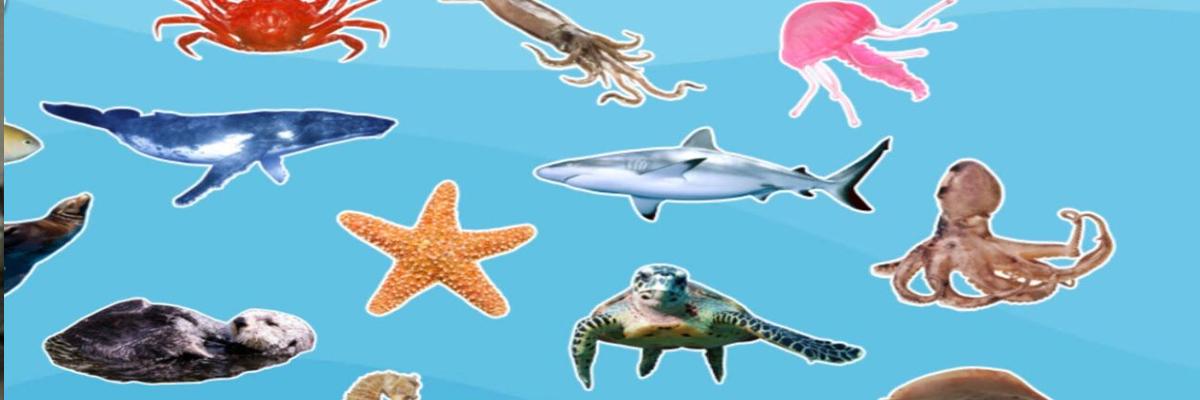Live
- They always want me to win, and now I feel lucky to have been offered a story like ‘Zebra’: Satyadev Kancharana
- ‘Democracy first, humanity first’: PM Modi in Guyana's parliament on two countries' similarities
- PKL Season 11: Telugu Titans register third straight win to top standings
- Is Pollution Contributing to Your COPD?
- NASA Unveils Underwater Robots for Exploring Jupiter's Moons
- Additional Central forces arrive in violence-hit Manipur
- AR Rahman and Saira Banu’s Divorce: Legal Insights into Common Issues in Bollywood Marriages
- 82.7 pc work completed in HPCL Rajasthan Refinery area: official
- Curfew relaxation extended in 5 Manipur districts on Friday
- Tab scam prompts Bengal govt to adopt caution over fund disbursement
Just In

There are many creatures living in the waters of the oceans Some are quite funny looking, some have strange habits and weird abilities, some are tiny, and some are huge Check out the projects in this issue to find out more
There are many creatures living in the waters of the oceans. Some are quite funny looking, some have strange habits and weird abilities, some are tiny, and some are huge. Check out the projects in this issue to find out more!
Ocean Life: Oceans cover more than two thirds of the earth’s surface, and they are very deep! Fish and other animals make their homes in all different parts of the ocean, even on the bottom, or sea floor. The ocean is also filled with lots of plants, which provide food, homes, and protection for ocean animals. A person who studies ocean life is called a marine biologist.
Microscopic plants and animals called plankton are very important in the ocean because they become food for a lot of animals. They drift along with the currents in the water and are eaten by fish, scallops, anemones, and others. Krill are small creatures that look like shrimp. They eat plankton and are eaten by larger animals, such as whales and birds.
Some creatures that live in the ocean use a special chemical reaction inside their bodies to create a glowing light. The light is called bioluminescence and happens when certain chemicals mix together, along with some oxygen from the water, in a particular part of the animal’s body.
Because many bioluminescent animals live far down in the oceans where it is very dark (since sunlight cannot travel down that far through the water), the lights they make work sort of like a night light and help them see where they are going and to find food as well as other creatures to mate with. The anglerfish is an example of a deep sea creature that uses bioluminescence to find food. It has a glowing “lure” that extends from its head and dangles above its mouth. Other fish think the lure is food, but when they try to eat it, the anglerfish eats them instead! Here is a picture of an anglerfish.
Fish: Fish have bones and are cold-blooded. (Cold-blooded means that their body temperature depends on the temperature of the water around them, unlike humans, who have a normal body temperature that stays at 98.6 degrees.) They breathe oxygen from the water through gills on the sides of their bodies. They cannot breathe air or live outside of water. Most fish are covered with small scales instead of skin. Fish use fins and a tail to swim around. Baby fish hatch from eggs. A person who studies fish is called an ichthyologist (say: ICK-THEE-ALL-O-JIST).
Most fish have a special part inside their bodies called a swim bladder. Air inside the swim bladder helps the fish float through the water. The fish can adjust how much air is in its swim bladder. If it wants to swim deeper, it lets some air out and if it wants to swim up towards the surface, it will let more air into its swim bladder.
Some animals that have the word “fish” in their names are not really fish. Some examples are cuttlefish (they are mollusks, see below), jellyfish (they are actually plankton), and starfish (they belong to a group called “echinoderms”). Can you think of any other animals that are called fish but do not have the things it takes to be a real fish?

© 2024 Hyderabad Media House Limited/The Hans India. All rights reserved. Powered by hocalwire.com







